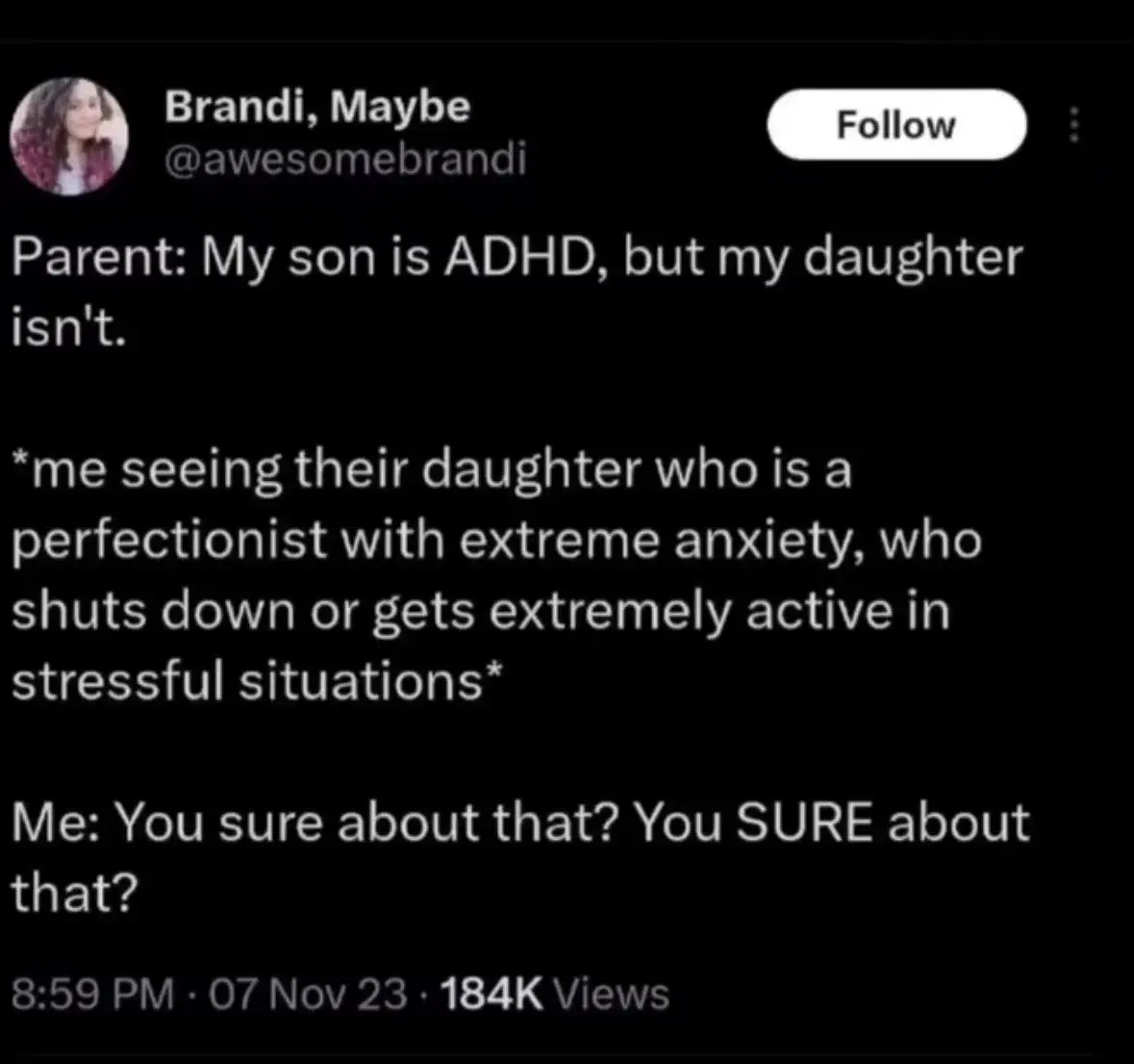this post was submitted on 08 Aug 2024
714 points (96.6% liked)
ADHD memes
8679 readers
865 users here now
ADHD Memes
The lighter side of ADHD
Rules
Other ND communities
- !adhd@lemmy.world - Generic discussion
- !ausomememes@lemmy.dbzer0.com
- !autism@lemmy.world
- !autisticandadhd
- !neurodivergence@beehaw.org
founded 2 years ago
MODERATORS
you are viewing a single comment's thread
view the rest of the comments
view the rest of the comments

I think it is at least in part due to it manifesting differently. This is slightly different because it pertains to autism, but a while back I read about how one of the theories of why autism seems to be lower prevalence is girls is because the social norms of girls/boys are different. For example, young boys tend to socialise with team sports, which can be highly reliant on non-verbal communication. In contrast, because neurotypical girls are (implicitly and explicitly) taught to take on caring roles, an autistic girl is more likely to be "taken under the wing" of a neurotypical girl, providing more opportunities to develop social skills via social mimicry.
I'm just one autistic woman, but this certainly scanned with my lived experience. As a result of this, I wasn't diagnosed until my teens, after a full on mental breakdown led to a psych eval.
I agree with you that institutional bias plays a huge role: I had a partner who had ADHD and was diagnosed quite young. When we discussed our experiences of the early years of school, I was struck by how similar our experiences were in terms of our behaviour, but how he was read as being a naughty boy (which is what led to his much earlier diagnosis) whereas my distractibility and fidgeting was seen as either me being unstimulated in class, or anxious. I think I'd have probably been diagnosed way sooner if I were a boy acting as I did.
But what's really interesting to speculate on is the way that my behaviour and understanding of my self changed over the years, as a result of that institutional bias. I think that there's a self reinforcing cycle at play, where an institutional bias leads to women and girls with ADHD (and/or autism) developing a particular set of masking skills that makes them further illegible to the systems that dispense diagnoses (which then reinforces said institutional bias).
That being said, I've noticed a lot of progress in recent years on this front, especially in the community. My friend is a high school teacher who almost certainly has ADHD but is on the very long waitlist for an actual diagnosis. Despite not having a diagnosis, understanding herself better has helped her to cope better in her life, and through community and solidarity, feels that she is better equipped to understand and support neurodivergent students in her classroom. People like my friend are one of the ways that the reinforcing cycle of institutional bias, even if progress on that front is slow.